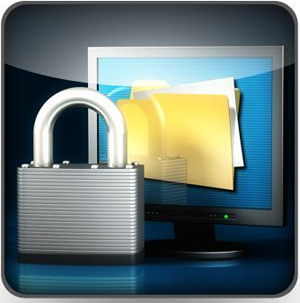 It’s not paranoia if they’re really out to get you. One nasty malware program or virus could wipe out your entire operating system. Along with your operating system, your photos, music, files and programs will go up in smoke as well.
It’s not paranoia if they’re really out to get you. One nasty malware program or virus could wipe out your entire operating system. Along with your operating system, your photos, music, files and programs will go up in smoke as well.
In most cases, unless you take precautions before something happens, you won’t be able to recover these files. When it comes to personal computer data, an ounce of prevention is worth a ton of cure. Here are a few essentials to be aware of:
Anti-Virus Software
Use professional software from Norton or McAfee. Not all shareware anti-virus programs are updated as quickly as the “big guns” and they often lack the real time monitoring tools you need for secure web browsing.
It is always good to have at least one additional program like Malwarebytes installed. Malwarebytes has free and full versions and comes highly recommended by many anti-virus experts. Schedule regular scans and updates with all your anti-virus software.
Wireless Security
By default, most wireless routers and modems do not come with firewall or password protection turned on. If someone “piggybacks” on your home wireless Internet connection, they’re not only stealing your bandwidth, but they could also potentially hack into other computers on your network. Use a strong password for your wireless network, turn on the firewall features and turn off personal file sharing off on all your computers.
Data Backups
Even though some PCs appear to have two internal hard drives, these are usually both partitions of the same physical hard drive. One of the best ways to back up your data is to buy an external USB hard drive and make regularly scheduled backups. You should also consider adding a program like Norton Ghost to make a full copy of your hard drive so that you can restore all your programs and files. Macintosh users can use OSX’s pre-installed Time Machine utility.
Cloud Storage
One of the disadvantages of having dual hard drives is that they are both in the same physical location. If something devastating like an electrical surge or a fire happens, your data is gone for good. Cloud storage – storing files on remote Internet servers – eliminates this problem because your backups are stored elsewhere. Google, Microsoft and many other companies offer cloud storage services for a reasonable monthly fee.
Passwords
Even though it may seem tedious, you should have a different complex password set up for each user account on your computer. Think of what could happen if your laptop is stolen. If you store your usernames and passwords in your web browser (and many people do!), the thief could gain access to your online banking account, your email contacts and stored credit card information. Every aspect of your online life would be available for that person to access.
Data security seems frightening because of stories in the media about large companies getting hacked, but really it just comes down to being practical. Just like you wouldn’t want to leave doors and windows open in your home, you want to keep them closed on your computer as well. Spend a little time each week running virus scans and backing up your data and it will save you hours of headaches in the long run.